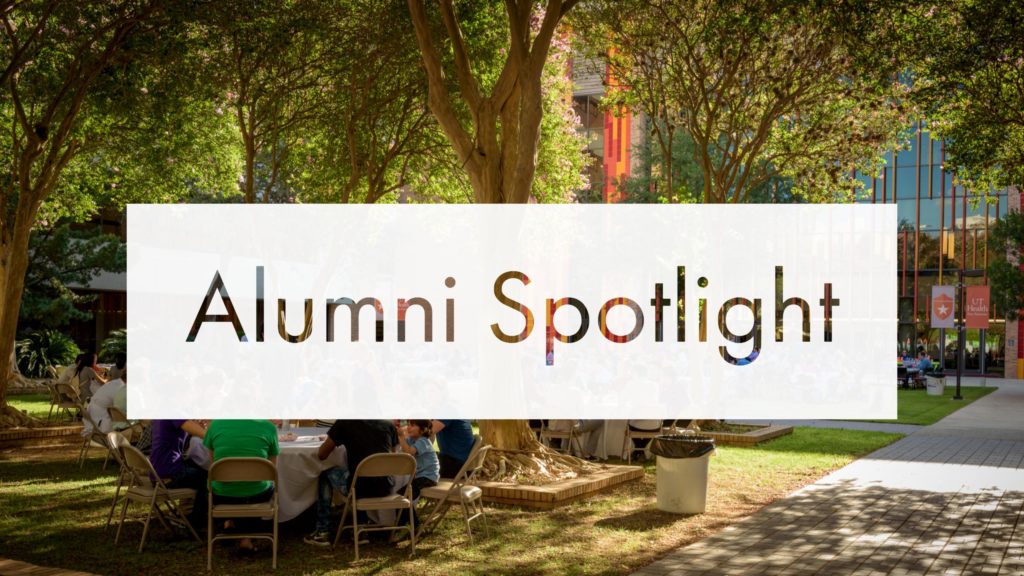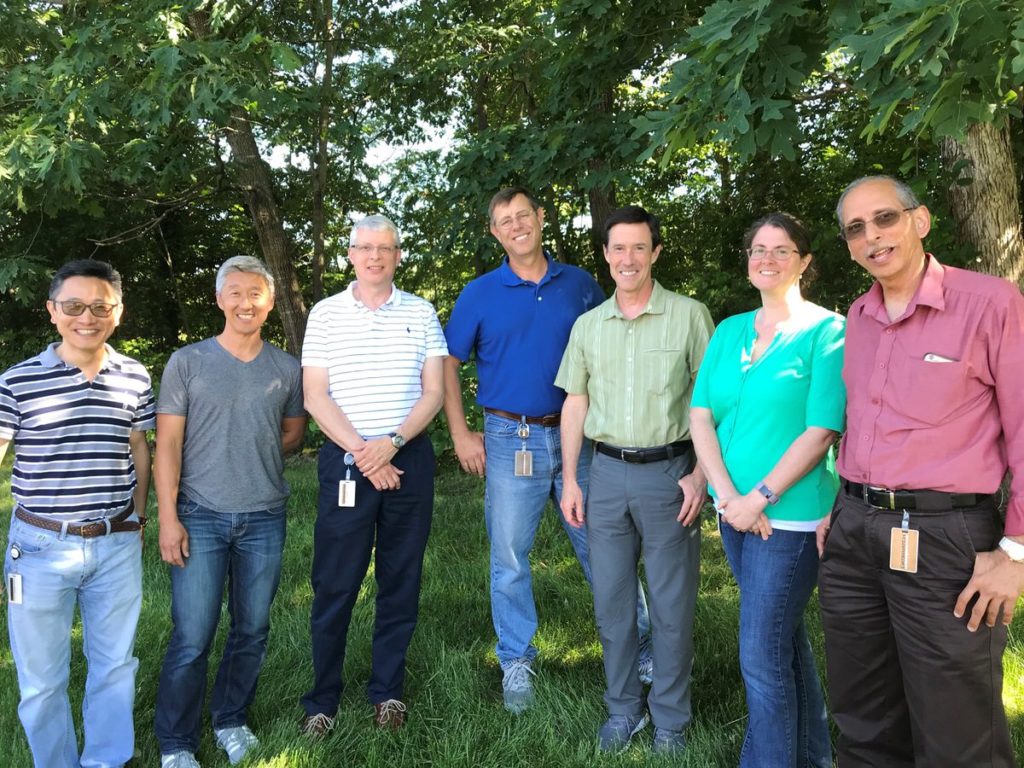Alumni Spotlight: Dr. Randall Lanier, Chief Science Officer of Chimerix
Dr. Randall Lanier, chief science officer of Chimerix, will be speaking on Tuesday, May 28 at 11 a.m. in room Med 209L. Here is the link about the event.
When did you first become interested in science?
The answer depends on how you define science. I was one of those kids who asked lots of questions about how things worked and wanted to catch and keep every lizard, frog, or unusual insect I found. I remember stalking a mole for hours when I was about eight because I wanted to see its feet. It is harder to catch a mole than you might think because, well, they live underground. A bit later I discovered “17 year locust” (cicada) nymphs don’t drown if you submerge them completely for three days, but earthworms drown fast—yet both of them also live underground. That kind of thing went on a long time. I had patient parents. Serious interest in science probably started with organic chemistry in college. I was planning on a literature major and my premed roommate dared me to take organic. It was very hard, and I was not a gifted student of chemistry, but I was hooked. Cell biology/embryology was even better. I still feel complete awe and ineptitude when I try to think through how a single cell becomes something visible.
Why did you pick The University of Texas Health Science Center at San Antonio and your program?
I met Dr. Ivan Cameron (CSB) at a Cell Biology meeting late in my college career. He was presenting a poster on using NMR to look at sea urchin embryos and I had been using NMR for synthetic organic chemistry and studying developmental biology of sea urchins using microscopy, but never considered NMR of embryos. It was weird and interesting. Dr. Cameron subsequently wrote me a letter explaining why I should consider coming to graduate school at UT Health San Antonio and I guess he made a pretty good case.
Tell me more about your career path.
Serendipitous. After my Ph.D. in 1992, I had this idea that I wanted to be a lawyer, but I needed to get residency in North Carolina first which required a job. Through an odd sequence of events I wound up at Burroughs Wellcome working on enantioselective synthesis of FTC (a nucleoside antiviral for HIV) using pig liver esterase (PLE). My job was to make PLE without pigs which required molecular biology and cooperative bacteria and/or yeast. As boring as that sounds now, I really enjoyed it from day one. A year later I joined Marty St Clair (discoverer of HIV activity of AZT) and embarked on about 15 years of HIV research at BW and then Glaxo lineage companies, focusing on nucleosides and resistance (HIV). In the early 2000s resistance became less and less important and I was tired of traveling all the time (young children), so I joined a small biotech (Chimerix) in 2007 which had about a dozen people on board.
Tell me about your current career, what do you do?
Try to discover and develop drugs for unmet medical needs. It is not a job for people who crave tangible overall success. I’ve worked on drugs for smallpox, HIV, adenovirus , CMV, norovirus and cancer for 27 years; so far, one has made it all the way through FDA approval. It is never boring, but it can be very frustrating.
What is a day like in your job?
Meetings, budgets and politics. We squeeze in science wherever possible! Seriously, it varies a lot but much of it is meeting with teams of scientists, clinicians and business people to fund and develop promising drugs to the best of our ability. We do a lot of problem solving and option analysis to find the shortest route to answers. It is slow, tedious work much of the time, but every now and then something really works, and you feel like you made a real difference.
How did the education you get at The University of Texas Health Science Center at San Antonio prepare you?
I wandered a little at UT Health San Antonio—starting with Dr. Cameron on relative states of water and ions in cells and ending with Dr. Ellen Kraig working on developmental regulation of T-cell receptor rearrangements in mice. Dr. Cameron showed me that even full professors could get giddy with sheer joy on making small discoveries and Dr. Kraig did her best to instill some discipline. Both examples have served me well and gotten me through some difficult times—and the T cell dissertation led to a job in HIV.
What is the most challenging part of your work?
Being patient and not regretting lost opportunities. You must make hard choices all the time and usually there is no going back. The time scale of drug discovery feels glacial and sometimes the best science is sacrificed on the altar of commercial viability.
What is the most rewarding part of your work?
Making plans and seeing them actually work. Obviously it is rewarding to find solutions to unmet medical needs but that happens once or twice in a career–if you are lucky. Dreaming up experiments and doing them and coming in to see the results is the real fun that happens often enough to keep you going. I guess that is no different than any other science career!
What has been your proudest achievement?
Finding a good antiviral for norovirus starting from mouse poop I collected from a little colony in our house; I isolated a mouse norovirus from that poop and we used it to screen for antivirals active against human norovirus based on homology of the nucleotide binding domains. It took six years to go from buying mice with my kids to seeing the drug being given to the first human volunteers in Phase 1 studies. That was something.
What would you tell a current student interested in your career? Any advice?
Ask yourself if you are the kind of scientist who is happiest focusing on one area and being the oracle of that realm or if you are fine with changing directions/focus frequently. My experience is that one is asked to pivot a lot in industry–sometimes you get a long stretch in one area, but that seems more the exception than the norm. When my interests and the corporate goals are aligned everything flows. When I really want to work on a project they (often commercial) don’t value, it is stressful and frustrating.
Drug discovery/development is a fickle field and requires huge sums of money to progress. Companies make decisions to cancel promising programs all the time and if you are irrevocably committed to that program, you will be canceled too. But if you just like studying science and are okay starting over in new areas every few years it can be great fun.
What are some options that a graduate student can do to gain experience in this field?
Intern.
What do you like to do outside of work?
Play ultimate, watch bugs.
Who has influenced you the most in life?
Amy Smoker
If you were stranded on a deserted island, what one band or musician would help keep your sanity?
Van Morrison
What do you consider your favorite hobby?
Ultimate
 What is your favorite quote?
What is your favorite quote?
See photo.
If you could have dinner with one person, living or dead, who would it be?
My mother
If you won the lottery, what would you do?
Worry less about money I hope
If you could travel anywhere, where would you go?
The deep deep ocean
If you could only eat one thing for the rest of your life, what would it be?
Eggs
Which authors or books have influenced you the most?
Pleading the 5th
Tell us something about yourself that otherwise we wouldn’t know or guess.
I am a serious person most of the time.



